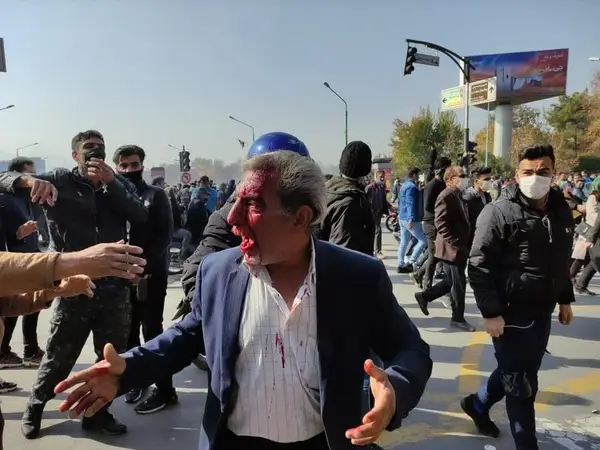Amnesty International has rebuked Iran for routinely repressing citizens and "systemic impunity" of officials for "past and ongoing crimes against humanity".
Several thousand men, women and children – including protesters, journalists, dissidents, artists, writers, teachers, and dual nationals -- were interrogated, unfairly prosecuted and/or arbitrarily detained solely for peacefully exercising their rights to freedom of expression, association and assembly, and hundreds remained unjustly imprisoned, the global rights watchdog's annual report released on Wednesday said.
Iran witnessed several widespread protests during 2021, including protests over water shortage in Khuzestan and Esfahan while teachers, workers, nurses, and pensioners had to resort to recurring protests demanding improvement in their livelihoods. Security forces dispersed peaceful gatherings in most cases and even resorted to using lethal force in Khuzestan in July.
"Torture and other ill-treatment, including denying prisoners adequate medical care, remained widespread and systematic, especially during interrogation," the report said, adding that torture-tainted “confessions” were broadcast on state television and consistently used to issue convictions.
The death penalty was used widely, including as a weapon of repression, according to the report, and executions were carried out after unfair trials while systemic impunity prevailed for past and ongoing crimes against humanity related to prison massacres in 1988 and other crimes under international law.
The report criticized the country's presidential elections of June 2021 which it said were held "in a repressive environment with a markedly low turnout" to bring to power Ebrahim Raisi who should have been investigated for crimes against humanity related to the mass enforced disappearances and extrajudicial executions of 1988. This, the report said, reflects "systemic impunity in Iran."
In the same elections, authorities barred women, members of religious minorities and critics from running, and threatened to prosecute anyone encouraging election boycott, Amnesty said.
The report also criticized the Islamic Republic for "entrenched discrimination and violence," "undermining sexual and reproductive rights," violating the right to freedom of religion and belief, and limiting access to the internet.
In July, parliament fast-tracked preparations for a bill that is expected to be adopted in 2022, which would criminalize the production and distribution of internet censorship circumvention tools and intensify surveillance.
The global watchdog said Iranian authorities also failed to ensure timely and equitable access to Covid-19 vaccines. Supreme Leader Ali Khamenei, banned Importing Covid vaccines from the US and Britain on January 8, 2021 when the World Health Organization (WHO) had only approved the US-made Pfizer, Moderna and British-made AstraZeneca vaccines.
Iranians had to wait for months for Chinese, Russian and homegrown vaccines, while a severe wave of infection in summer killed tens-of-thousands of people. By August, less than 6 percent of Iranians had been vaccinated but the ban was lifted that month, when Raisi took over from his predecessor, Hassan Rouhani, whose efforts to procure vaccines had been stymied by the ban. Hardliners claimed Khamenei had never banned foreign vaccines.
The report also highlighted the arbitrary arrest of six people, including five lawyers and a civil rights activist, in August for holding a meeting to discuss taking legal action against authorities for mismanagement of the pandemic and delay in mass vaccination.
